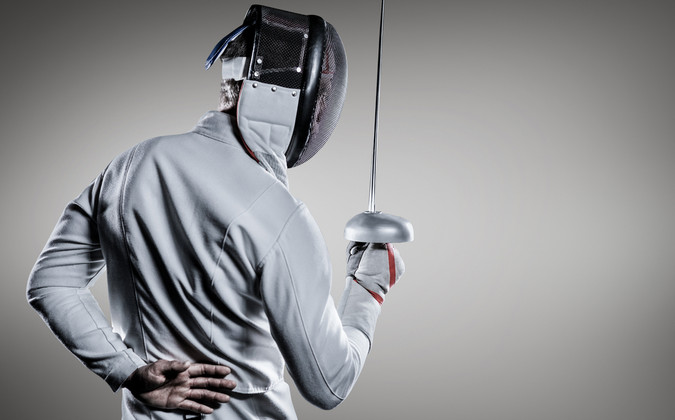How Athletic Do You Need To Be To Fence?
Posted by Sword N Armory on Jun 18th 2020
Fencing (the act of dueling in competition with a thinner fencing-type sword) has a long tradition as a sport and active hobby throughout the world for many centuries. Many excellent fencers become active on the tournament circuit. A very select few even reach the grand stage of the Olympics. Not everyone enjoys the sport of fencing for the glory of competition. Many sign up with fencing clubs just because they enjoy the fun of training. Others may be wondering about taking up the hobby, but they are not sure if they possess the athleticism to be good at fencing.
Does someone have to be a "top" athlete in order to be a good fencer? Fencing is a sporting endeavor, which means athletic skill is necessary. A would-be fencer does not, however, have to be an elite athlete. Simply developing average or above-average athletic skill would be beneficial to get the most out of fencing classes.
A decent level of cardiovascular conditioning is required to get the most out of fencing. Fencing is hardly a sport that is static. Fencers are constantly moving around. Movement, a sense of timing, distance, fighting measure, and manipulating the other fencer's ability to move play major parts is winning. Getting tired out too quickly is going to undermine the chance of winning and will take all the fun out of the endeavor. Plus poor cardio makes striking with the foil/saber slow. A slow attack is going to be a failed attack.
Hitting the gym and exercising the leg muscles is an absolute must. Otherwise, all the footwork necessary to attain solid fencing skill will be lacking. Basic exercises working the quads, hamstrings, and calves absolutely would help.
Plyometric (jumping) exercises would be a huge help as well. Explosive lunges are necessary in order to hit a target once opened. Plyometric exercises enhance such athletic abilities tremendously.
Flexibility is another attribute worth having. Flexibility in the wrist is beneficial since the hand holding the foil must perform circular motions smoothly and efficiently. This is needed for both offensive and defensive tactics.
To a degree, athleticism is rooted in natural ability. Being able to increase one's athletic ability is possible even for those who may be awkward or out of condition. Taking things slowly and working at building up attributes will enhance athletic performance over time. Those not interested in rushing into competition should not feel stressed about their training. With the right attitude and consistent training, even a rank beginner can become a skilled and effective fencer.












